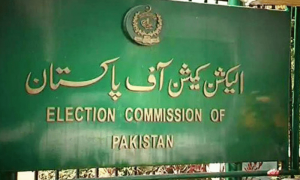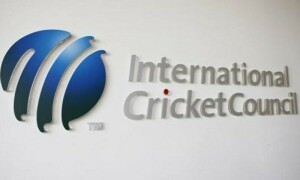 THE Federal Board of Revenue (FBR) is facing a revenue shortfall on the corporate sector despite extensions in the date for filing their income tax returns.
THE Federal Board of Revenue (FBR) is facing a revenue shortfall on the corporate sector despite extensions in the date for filing their income tax returns.
The FBR had extended the date from December 31 to January 31 in the hope that maximum corporate returns and tax will be received. However, the revenue received up to the extended deadline with corporate returns was around Rs5 billion this year as against Rs28 billion of last year.
This is a source of concern for the tax administration as it has witnessed almost similar fall in revenue and filling of individual income tax returns for the tax year 2007. Could this trend mean that the Universal Self-assessment Scheme (USAS) is faltering?
The corporate sector is the largest contributor of income tax receipts in the developed countries. This sector in Pakistan consists of listed public and private firms including banking companies, but the tax revenue generated from these firms remains below the potential particularly in the case of private companies.
An official report of the FBR shows that 21,008 companies are registered with the tax department against over 45,000 listed with the Security Exchange Commission of Pakistan (SECP). But only 12,000 companies have filed corporate returns fiscal this year.
The number of tax returns filed by the corporates has been stagnant between 9,000 and 12,000 for the last five years. No tangible result has been achieved in bringing more companies under the tax net as the gap between the filing and non-filing companies is widening. Besides, almost half of those that file returns have declared business losses. For detecting firms evading taxes, there is a need for a strong audit, which has been suspended for the last few years.
With this decline in tax payment with returns of both corporate and individuals, the income tax collection remains behind the target. In the first half year of the current fiscal, the income tax collection recorded a shortfall of more than Rs30 billion.
This is also reflected in negligible growth in revenue realisation. Although the revenue collection recorded a growth of 10.2 per cent in the first seven months of this year as compared to last year’s collection of Rs462.7 billion, a tax-wise break-up showed that income tax collection declined by 2.98 per cent to Rs191.5 billion against Rs197.39 billion collected in the same period last year.
Tax officials attribute the stagnation in numbers filing of income tax returns to outdated data base of the SECP. Many companies registered with SECP operation have ceased to exist.
There is no reconciliation of the data on registration of companies with the SECP and those listed with the FBR. The FBR needs to constitute a task force to reconcile its data with that of SECP to unearth the non-filers.
An official report of the FBR says the income tax collection from corporate sector has increased at an accelerated pace during the past few years despite the continuous reduction of corporate rates for banking and private companies.
The breakup of the corporate sector contribution is quite interesting. To start with, the overall contribution has increased from Rs171 billion during 2005-06 to Rs250 billion during in 2006-07. The collection from public, private and banking companies has increased by 47.6 per cent, 36.9 per cent, and 69.6 per cent respectively, reaching Rs92.9 billion, Rs112.1 billion and Rs44.6 billion.
Whereas the improved profitability of the banking sector has come from improved performance of banking companies, the robust growth of public companies has mainly originated from the oil and gas sector. On the other hand, private companies have registered the weakest growth.
In fact, the share of private companies in total corporate sector contribution has declined to 45 per cent in the year 2006-07 from 48 per cent in 2005-06. This outcome highlights the need of revisiting the extent of tax compliance by the private sector, which incidentally is quite appalling in view of the fact that only one-third of the firms in the past have declared taxable income.
Currently, the public companies, despite their small number (468), are the major contributors in total gross collection. Their share has been around 52 per cent. The rest comes from banking and private companies.
Further break up shows the low tax receipts from corporate sector have been encountered in the jurisdiction of regional tax office (RTO)/ large taxpayers unit (LTU) at Karachi and RTO Islamabad where major corporate hubs are located. While the number of returns filed by the taxpayers are in line with the previous year, there has been a huge difference in payment with returns.
The FBR official report says whereas the RTO Karachi had received only Rs16.16 million from 231 corporate returns filed during first half of the current fiscal year as against Rs1482.1 million from 211 corporate returns filed during the corresponding period of last year; the LTU Karachi has received Rs2061.1 million from 86 returns filed, as against Rs6508.8 from 111 corporate returns filed last year. A similar situation prevails in the Islamabad region.
A further analysis confirms that 96 per cent of income and corporate tax has been received with returns during fiscal year 2007-08 and the rest is submitted with statements, whereas last year nearly 99 per cent of the collection came with returns. The share of the corporate sector in total collection with return has been 68.7 per cent this year as against 84.4 per cent last year. No significant change has been observed in the statements category except for the ‘other’ category.
However, the FBR officials hope that the dip in revenue collection would slow recover in the months ahead. They expect tax collection to make up for some more losses in revenue incurred during December 2007 owing to reduced working days of 15 on account of Eid holidays, Quaid-i-Azam’s birth anniversary, assassination of former prime minister Benazir Bhutto and disturbances that followed.
The tax officials also defend the fall in revenue due to some procedural changes in the income tax system. They say advance taxes have been taken from major companies which was one of the reasons for fall in the revenue.
The tax department appears least equipped to mount an effort to bring about tax compliance from this category of tax-payers. Though a marginal increase in corporate returns has been recorded, this number continues to remain short of the corporate National Tax Base (NTN) by a wide margin.
A serious effort is needed to broaden tax base. The corporate base is not only narrow but also largely dormant.











































Dear visitor, the comments section is undergoing an overhaul and will return soon.